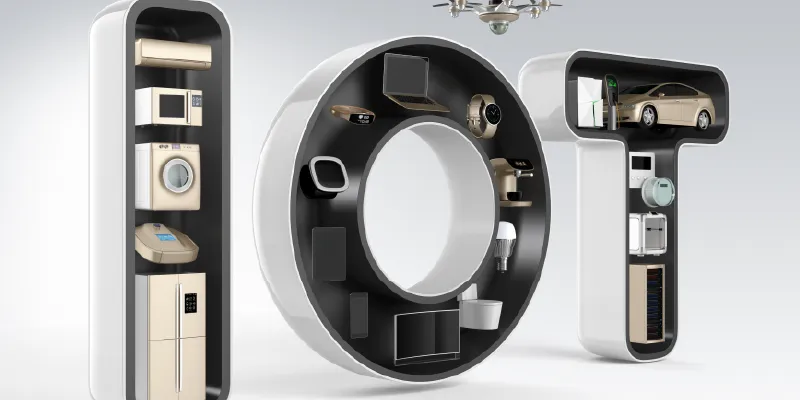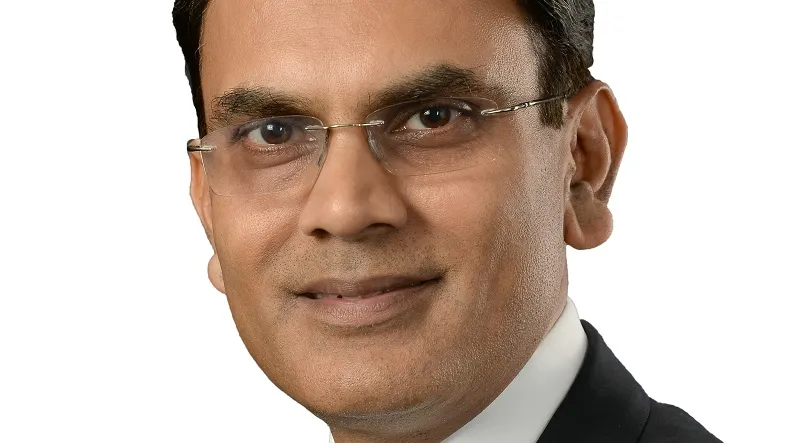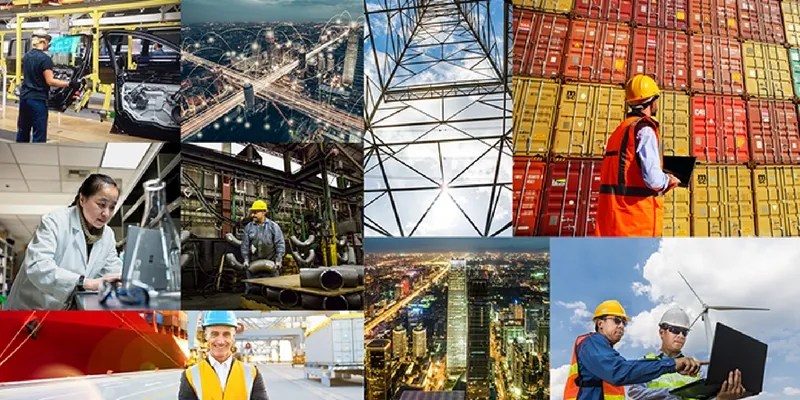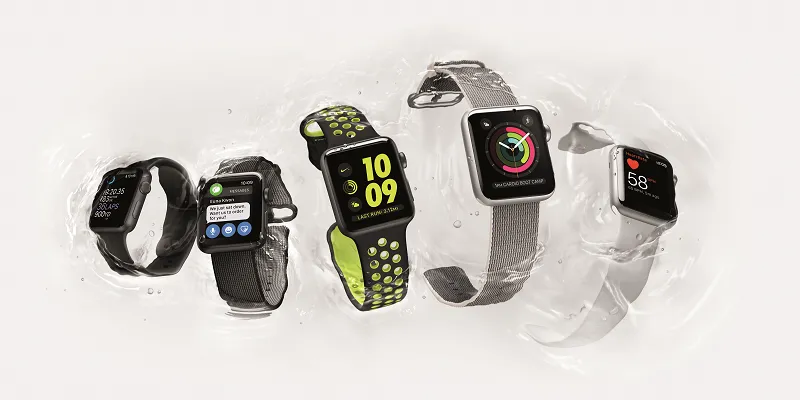Tata Communications’ VS Shridhar spells out what it would take to unlock the full value of IoT in India
Tata Communications’ IoT business unit head VS Shridhar firmly believes that the full potential of the Internet of Things, or IoT, will be realised in the coming decades. But for IoT adoption to take off, there must be a network supporting the technology, he says.
The Internet of Things, or IoT, has been one of the top tech buzzwords for a while now, given its potential to create a large network of connected devices over the Internet. Despite the hype surrounding IoT, in both the startup and tech communities, a majority of IoT startups in India have not been able to show significant growth, with annual revenues remaining well below Rs 2 crore, as per YourStory Research data.
Still, startups and large corporates continue their focus on creating IoT solutions. India Inc has also made significant investments in building the backbone for an IoT ecosystem. And none moreso than Tata Communications, which bet on IoT about three years ago. At the time, Tata Communications, or the erstwhile VSNL, began working on building India's first IoT network, with the aim of creating the world's largest such network that would reach over 400 million people.

Today, Tata Communications' bet is paying off, with the company's IoT business unit boasting of an enviable customer base, comprising both enterprises and governments.
To understand the full potential of IoT and what it would take to unleash that value, YourStory spoke to VS Shridhar, Senior Vice President and Head of Tata Communications' IoT business initiative.
Shridhar, who joined Tata Communications in 2002 when the Tata Group acquired VSNL, is leading the company's efforts to grow its market leadership position in the IoT space in India. That, Shridhar says, means helping realise the full potential of IoT implementation, much of which is centred on effective data utilisation.

V S Sridhar, Head of IoT at Tata Communications
Also read: IoT Day 2019: meet the top 5 emerging IoT startups of India
Edited excerpts of the interview with Tata Communications' IoT business unit head VS Shridhar below.
YS. We have met about 70 IoT startups over the last year, and while they have been around for three to four years, their annual revenue has not crossed Rs 2-3 crore. What’s happening in the IoT space, and where do you see the opportunity?
VS Shridhar: Our story actually started two to two-and-a-half years ago when we decided to take the plunge into IoT. We have built a dedicated IoT network, and right now, it is functional in 38 cities and across seven logistics corridors in India.
Why did we do that? We built it because we believe that for IoT devices to be supported, they need to be supported very differently from your normal devices. Their requirements are different, and there are differences in bandwidth requirements. Over 80 percent of all devices are on narrowband, and IoT does not work very well on the old network.
All a customer cares about is real business problems, and for them, IoT is about using data to manage assets efficiently.
Also read: IoT Day 2019: meet the top 5 emerging IoT startups of India
YS: You said Tata Communications’ IoT play is a three-year-old business, right? It’s almost like a startup inside Tata Communications.
VS Shridhar: I think we took forever to establish the network case studies, and establish everything in here. We had to work with our customers to tell them that IoT adds a lot of value, and I must refer back to the point that the customer only cares about how the assets are utilised. We proved that with them.
In the first step, they would ask us do a proof of concept. We had to offer them a degree of predictability in tracking their assets; there had to be no doubts about the technology or the network.
Remember that when we handle hundreds of devices, we have to offer a service that is based on data. There are lots of insights and you're absolutely right about the fact that we gather insights.
At the end of the day, when somebody looks at an IoT implementation, it is not about plugging in a device. It's not about the network, it's about the data and what you do with it and how you can prevent certain occurrences or incidents in the future. It is about how you can actually predict and analyse data, and patterns to take action accordingly.
If you look at safety solutions for workers, there was a case where a person was handling a hazardous liquid, and his pulse rate was going up. We wouldn’t have known that it was high if he wasn’t wearing a device on his wrist. Turns out, the worker had a health condition which was identified and addressed.
So, this is an example where IoT can help workers. We can actually intervene and tell a person that you have a problem and you can rest and come back, or we can treat you or connect you to a hospital network. The doctor can actually look at the data and help the patient. This is the kind of service that enterprises get with IoT.

Also read: Impactful products that Indian IoT startups are building
YS. Who are your clients? Could you share some examples of what customers want in IoT?
VS Shridhar: We are not focusing just on enterprise. We're also focusing on the government. We believe there will be an equal split, or maybe a little more in favour of the government.
Enterprises need to manage their assets and their costs. They also need to manage customer experience. Managing energy is one example for both enterprises and governments.
The government is now investing heavily in Smart Cities, and here we are focusing on helping agencies like municipalities to manage street lighting and energy. We're also talking about managing utilities like gas, water, and electricity.
Today, electricity meters are not necessarily connected to a network, and you don't get automated meter reading. So that’s one big thing happening in India. The next big thing will be gas. Piped gas is a big thing because the government has said it wants to increase its share in energy management as gas is far more efficient and environment-friendly.
When I look at smart city solutions, the government is keen on deploying solutions to manage energy bills and manage utilities.
YS. The government is not tracking groundwater too, right?
VS Shridhar: Yes, groundwater is another thing. Here, if you even start metering water, the behaviour changes. In Bengaluru, there is a case study of a society that was democratically distributing all charges to its 250-odd members, but then some members demanded that payment be made as per consumption. And guess what, consumption came down by 30 percent. Human behaviour can change substantially with technology and data.
Also read: 10 Indian IoT startups to watch out for
YS: Many large enterprises are using robots, but none of them are connected. Do you see a revolution in manufacturing with IoT integrated solutions?
VS Shridhar: If I look at IoT at a simplistic level, it’s about a sensor that gets smart. If I have a motion sensor and I connect it on the Internet, I call it an IoT device. So, sensors have been there for a long time, but now sensors are becoming smart as they become connected, and this makes the difference.
The Apple Watch, or any other smart watch you wear, is an IoT device. It is sensing your heart rate, the steps you walk, and other information, while connected to your Bluetooth or the Internet. If the watch can be a smart IoT device, then why not robots? Robots’ movements can be tracked and you can feed data into each other; and that’s already a reality.

YS: Do you see any SMEs getting into the IoT space, or is it just the large enterprises?
VS Shridhar: With small and medium businesses (SMBs), we have been guilty of not playing the game yet. As we started engaging with SMBs, we realised that they need multiple things for energy management, asset tracking, and safety. So, in terms of maintaining certain environmental parameters in a plant, or enabling machines with safety devices and temperature control devices, SMBs can benefit from IoT.
YS: Will startups be a part of the IoT revolution?
VS Shridhar: Yes, startups are already a part of it. We are working very actively with startups because IoT is not about one huge monolith; it’s about getting the whole ecosystem going. It is not possible for any one company to deliver everything end-to-end.
On the devices side, we have startups working on temperature control devices as of now, and we have startups in Bengaluru who are doing this for us. We have offices and airports using devices from startups.
In asset tracking devices, we have various kinds -- one where you can track a truck, and another where you can track the temperature of a refrigerator inside a truck, say an ice cream one or a fish or agricultural produce truck so you can measure the location temperature and proximity sensor for the doors opening and closing.
The product is kept fresh because of data coming from the IoT device. So, we are engaging with startups in Bengaluru, Noida, Mumbai, and Pune, and also looking at Kolkata. We are also working with startups in the application development space, mostly for mobile apps.
Also watch: How Mumbai-based startup Transport Hub is using IoT to serve various business needs







